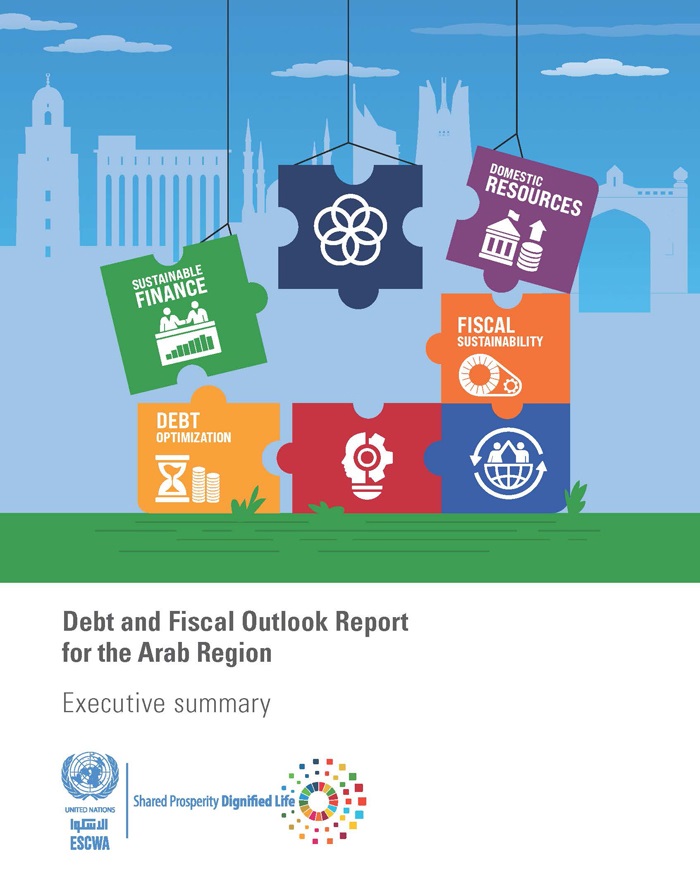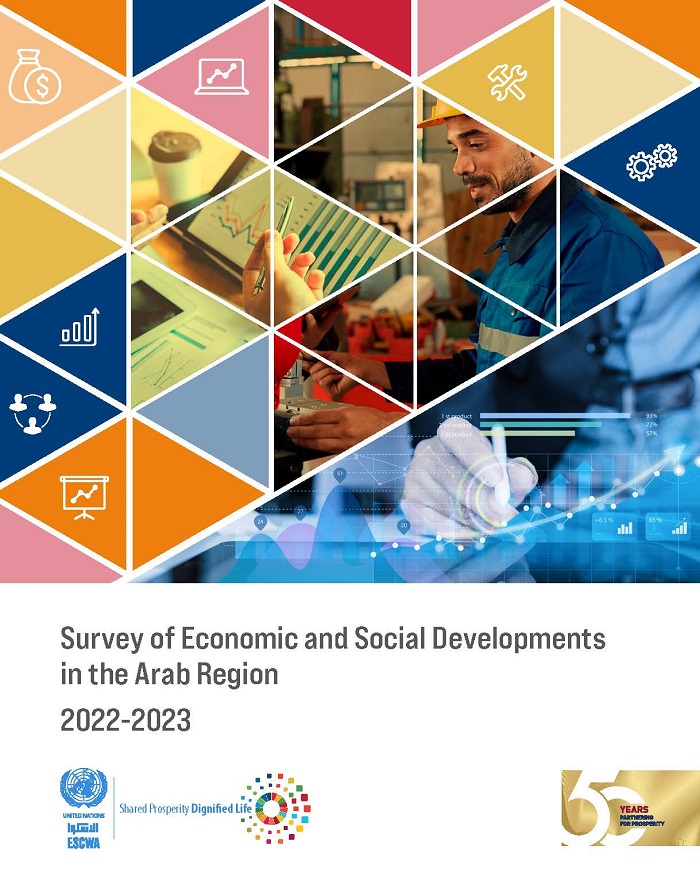
Background
Arab Governments have been grappling with unprecedented debt burdens, compounded by global economic uncertainties and regional instabilities. The "triple crisis" of food insecurity, fuel price volatility and climate change, coupled with the effects of the COVID-19 pandemic, has exacerbated fiscal and liquidity challenges. Meanwhile, rising interest rates, inefficient spending and limited access to concessional financing, as well as inequities in global financial markets, have further strained public budgets and raised risks to debt sustainability. Despite many countries’ efforts to explore innovative financing instruments to advance social, economic and climate objectives, the costs and risks associated with these instruments have increased owing to technical capacity gaps, inconsistent taxonomies for measuring outcomes, and limited opportunities for regional knowledge-sharing.
Our approach
To enable policymakers in member States to enhance debt optimization strategies and address debt sustainability challenges effectively, ESCWA provides tailored knowledge and tools, launches relevant initiatives and organizes capacity-building workshops. It also contributes to increasing policymakers’ readiness to access innovative financing instruments, and advocates for comprehensive reforms in the international financial system, promoting a fairer and more inclusive global framework that facilitates access to finance for inclusive and sustainable development.
Our partners
UN Trade and Development (UNCTAD)
Economic Commission for Africa
Economic Commission for Latin America and the Caribbean
Open Society Foundations
Our activities
ESCWA develops cutting-edge knowledge and dynamic tools to enhance debt management and fiscal policy strategies, including the Debt Optimization Platform—an advanced AI-powered tool that provides debt managers with insights into global debt market instruments, peer interest rates, and underlying conditions, enabling them to optimize debt portfolios and strategies effectively.
ESCWA also offers tailored support through national and regional workshops to strengthen policymakers’ capacities in formulating robust debt optimization strategies. The Arab Debt Management Group network fosters peer learning and experience-sharing among member States, facilitating critical discussions to improve debt profiles and strategies.
In collaboration with United Nations agencies, including UNCTAD and the United Nations regional commissions in Africa, and in Latin America and the Caribbean, ESCWA is producing knowledge resources and organizing interregional and regional workshops for peer exchange, as well as country-specific national workshops. These initiatives aim to build member States' capacities to access innovative financing instruments for climate action and sustainable development, advancing impactful and inclusive economic growth.
Within the framework of accelerating the implementation of the 2030 Agenda and the Paris Agreement, ESCWA assists member States in designing and implementing innovative debt swap programmes through the Climate/SDGs Debt Swap – Donor Nexus Initiative, in partnership with Open Society Foundations. These programmes transform bilateral debt service obligations into local currency investments, releasing much-needed liquidity from external debt repayment while driving progress on both national and global priorities.
ESCWA advocates for comprehensive reforms in the international financial system, which includes revisiting credit rating methodologies, and debt sustainability analysis frameworks, to promote a more equitable global financial system that enables access to finance for more inclusive and sustainable development.
The initiative has several reports:
- The Sovereign Debt and Financial Sector Nexus in the Arab Region
- Sustainability-linked bonds – feasibility and impact potential in the Arab world
- Enhancing social expenditure and fiscal sustainability: A structural macro modelling approach
- Debt Sustainability and Debt Management in the Arab Region
- Central Bank Finance and Debt Dynamics in Arab States
- Fiscal policy response to public debt in the Arab region (2020)
- Public Debt and Debt Stabilizing Scenarios for Egypt (2020)
- Public Debt and Debt Stabilizing Scenarios for Jordan (2020)
- Fiscal policy response to public debt in the Arab region (2017)
The initiative contributes to global reports and policy briefs on debt and fiscal issues:
- A World of Debt: Regional stories
- Addressing Public Debt Challenges to Effectively Pursue the Sustainable Development Goals: Regional Perspectives (2023)
- Financing for Sustainable Development Report (2022)
- Financing for Sustainable Development Report (2021)
- Liquidity and Debt Solutions to Invest in the SDGs: The Time to Act is Now (2021)
- Policy Brief: The Impact of COVID-19 on the Arab Region: An Opportunity to Build Back Better (2020)
- Debt and COVID-19: A Global Response in Solidarity (2020)
The initiative contributes to global initiatives:





